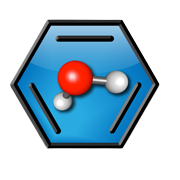The Test is Not For Everyone
IQMOLASSESSMENT OF CHEMICAL MANIFOLIGATIONS is used for all kinds of applications, from assessing product quality and consistency to evaluating the stability of chemicals during storage. The test is designed to assess a variety of chemical modifications including: hydrogenation, denaturation, cross-linking and polymerization. In addition, it assesses additives such as stabilizers, preservatives, stabilizers, antioxidants and colorants. There are two parts to the IQMOLASSESSMENT OF CHEMICAL MANIFOLIGATIONS test which include:
The test is completed in a chemistry lab, where a panel of experts is assembled. The test consists of a questionnaire and an examination of the subject material. The test is performed under the supervision of a trained instructor and the questions are designed to provide an accurate depiction of your knowledge and ability to answer the test.
The test consists of fifteen questionnaires and requires approximately forty-five minutes for completion of the exam. Once the test has been completed, the test administrator will provide you with an assessment report and recommendations on how to improve your knowledge and understanding of chemical modifications.
The results of the IQMOLASSESSMENT OF CHEMICAL MANIFOLIGATIONS test will determine if your company’s manufacturing processes contain chemical modifications which may affect the safety and efficiency of the products that they produce. They will also identify whether the modifications have increased or decreased the safety of these products, resulting in an increased or decreased risk to human health or the environment.
Many manufacturers choose the IQMOLASSEMENT TEST in order to verify their processes and ensure that the chemicals that they use in their manufacturing process are as they should be. This testing process can help ensure that chemicals are used in the most effective and safest way possible.
Each company is different and so are their specific test needs. A qualified instructor will be assigned to help you assess your company’s processes and decide if they require a more in-depth assessment or a basic evaluation. The course is designed to teach students how to administer the test in a classroom setting and how to ask relevant questions and analyze the information contained in the questionnaire.
In addition to helping a company evaluate chemical modifications, the test can also help identify whether or not certain additives are safe to use and whether or not they should be removed from their product. For example, some additives can cause a change in the color of the plastic products that they are used in. If there are no adverse effects, then the additive is usually a suitable additive.
Other chemicals can cause a change in the strength of a substance. If a chemical modification does cause a change in the strength of a material, this could indicate that the substance is more toxic than it originally was. This could mean that the substance should be removed from a product.
Some chemical modifications can also increase the life of a product and decrease its vulnerability to harsh weather, insects, or other hazards. If a company’s products are resistant to one or more of these hazards, then a product can be considered to be more reliable. This means that the product may be less likely to wear down and will be easier to handle and work with.
This assessment is especially important for products used in the food and beverage industry because some chemicals that are used in the manufacture of these products are poisonous. If a manufacturer’s products are sensitive to toxins and are more prone to cause an illness, then the quality of the products that they create will also be affected. This will affect the consumer’s health and in turn their quality of life.
By taking the IQMOLASSEMENT OF CHEMICAL MANIFOLIGATIONS test, a manufacturer will be able to determine if they need to conduct further testing on their product or if the testing is sufficient. If the testing reveals that further testing is necessary, the testing company will also be able to advise the manufacturer on what types of tests are necessary to ensure the quality and safety of their product.

